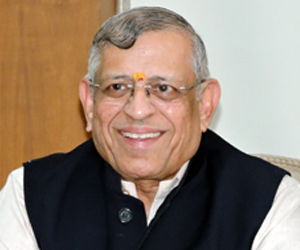The recent collapse of the global supply chains that threatened to integrate the world without borders, have left economists and statesmen bewildered.
Over a century ago, British economist Alfred Marshall said economics meant political economy. What he said was not as clear then as it seems today. Autocratic communism that saw “politics itself as economics’’ collapsed in half a century. Globalisation, which perceived “economics as a global market”, had a cerebral haemorrhage in under a quarter century. These economic doctrines that dominated the world for a whole century are being reduced to a footnote in contemporary economic history.
The recent collapse of the global supply chains that threatened to integrate the world without borders, have left economists and statesmen bewildered. This is where Alfred Marshall’s concept of political economy, a mix of national economics and national politics, seems to be emerging as the alternative to globalisation. The proportion of economics and politics in Marshall’s idea of political economy varies from country to country. And India is no exception to this trend.
Since 2014, the Modi government’s economic mix has had a greater share of economics than politics. It was the other way round in the second half of the United Progressive Alliance (UPA) dispensation. The budget presented last week by Finance Minister Nirmala Sitharaman seems to extend Modi’s model of economics that predominated politics in his own majority rule, into his alliance rule also.










Post new comment